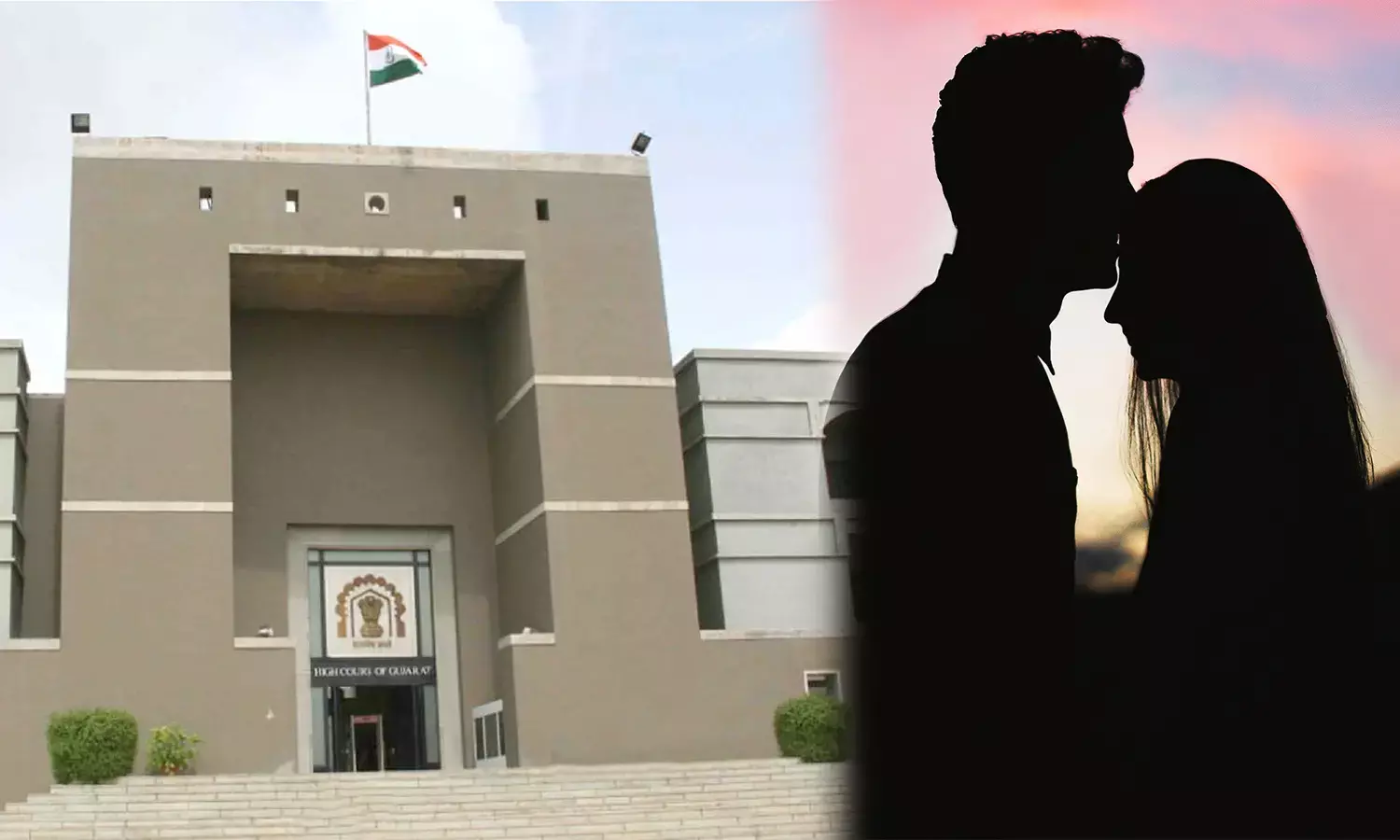A Person Still Needs To Take Prior Permission Before Conversion, Under Section 5 Of The Freedom Of Religion Act: Gujarat HC
The State had moved an application seeking rectification on an Interim Order passed by the High Court staying some sections of the Gujarat Freedom of Religion (Amendment) Act, 2021. The State argued that the order stays Section 5 of the Act which is prevalent since 2003, and has nothing to do with marriages.

A Bench of the Gujarat High Court, on Thursday, clarified that it has not stayed Section 5 of the Freedom of Religion (Amendment) Act, 2021 while passing an order on August 19. The Court said, "'medium of conversion through marriage' we stayed." However, the Court declined the request made by the Gujarat Government to clarify this in the order.
The Gujarat Government had moved an application for 'speaking to minutes' for rectification of the interim order passed on August 19 with respect to section 5. Advocate General Kamal Trivedi, while reading para-8 of the order submitted that the Court has 'virtually stayed section 5.'
Section 5 of the act speaks about taking prior permission of the district magistrate if a person wants to convert the religion. The government wanted rectification of the order on the ground that the order gives the impression that no person needs to take prior permission from the authority if he or she is converting.
Earlier, on Wednesday, while seeking to grant permission to hear the rectification application, Advocate General had argued that, "Section 5 has nothing to do with marriage. It is permission for conversion, held since 2003 (under Gujarat Freedom Of Religion Act, 2003). My Lords have recorded my argument, I said that per se marriage cannot be prohibited…Section 5 has nothing to do with it…It talks about whoever wants to convert has to take permission, and people have been taking permission since 2003."
He further informed the court that section 5 does not use the word "marriage," and it deals with permission from the District Magistrate for conversion, either before or after marriage or even in cases without marriage.
What does para-8 of the order say?
"We are therefore of the opinion that, pending further hearing the rigors of Sections 3, 4, 4A to 4C, 5, 6 and 6A shall not operate merely because a marriage is solemnised by a person of one religion with a person of another religion without force or by allurement or by fraudulent means and such marriages cannot be termed as marriages for the purposes of unlawful conversion."
What does section 5 of the act say?
"(1) Whoever converts any person from one religion to another either by performing any ceremony by himself for such conversion as a religious priest or takes part directly or indirectly in such ceremony shall take prior permission for such proposed conversion from the District Magistrate concerned by applying in such form as may be prescribed by rules.
(2) The person who is converted shall send an intimation to the District Magistrate of the District concerned in which the ceremony has taken place of the fact of such conversion within such period and in such form as may be prescribed by rules."
On Thursday, Trivedi argued before the Court that "rigor of section 5 is stayed because of paragraph 8, a person who converts will say no I don't need to take any permission."
The Chief Justice commented, "In such a matter whether the speaking to minutes would be appropriate? The whole matter is being argued again. Speaking to minutes Minor correction of typing error here and there and if something is missed out."
Trivedi replied, "I have not dealt with section 5. Section 5 was not in my imagination at that time. Permission is… for voluntary conversion, lawful conversation. Section 5 is literally stayed. As per paragraph 8, I need not go to take the permission."
The Court said, "Medium of conversion through marriage is stayed."
Then the Advocate General requested to clarify the some by an order. "Late it be clarified. We need to know, my lord. State should know where it stands," Trivedi said.
The Chief Justice said, "Supposing the X is a bachelor. He wants to converts. He would require that permission under section 5 we have not stayed it. Medium of conversion through marriage we stayed."
The Court then dictated the order that "We don't find any reason to make any changes in the order passed by us on 19th August 2021."
Senior Counsel Mihir Joshi appeared for petitioners Jamiat Ulema-e Hind, Gujarat and Mujahid Nafees and opposed the plea. He said, "Then entire order is unworkable my lords. The intention of your lordship is of marriage being saved. if someone wants to get married, the presumption is that it is unlawful conversion. Therefore permission as if the conversion takes place will be under 5."

